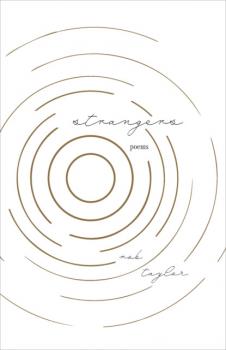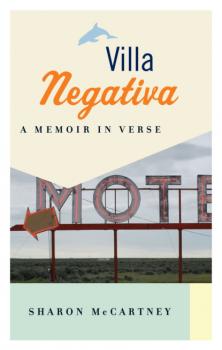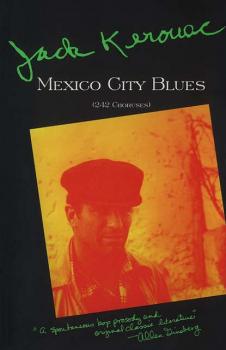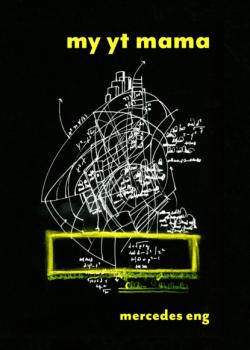ТОП просматриваемых книг сайта:
Зарубежные стихи
Различные книги в жанре Зарубежные стихи, доступные для чтения и скачиванияАннотация
In Smithereens , Terence Young ranges widely among forms, subjects, tones and moods, invoking the domestic world of family and home, as well as the associated realms of work and play. He describes the simple pleasure of losing one’s bearings and seeing the world anew in “Tender is the Night,” and in “The Bear” he records the near-magical appearance at a summer cabin of a creature that hasn’t been seen in the area in over fifty years. The ironic benefits of a house fire, the late-night sounds of a downtown alley, the smells of a summer morning in the Gulf islands—all of these serve as vehicles for reminiscence, meditation and humour. Elsewhere in the collection, he summons an elegiac mood, remembering in poems like “Surcease,” “Fern Island Candle,” “The Morning Mike Dies,” and “Gary” some of the friends who have left his world. More than any of his previous books, though, Smithereens features poems that are playful, in which language is often associative, surprising and fun. It is a collection that will reward readers, whatever their temperament upon picking it up, and it will also invite them to return to its pages again and again.
Аннотация
“It makes no sense. You would be strangers / if not for this.” In Strangers , Rob Taylor makes new the epiphany poem: the short lyric ending with a moment of recognition or arrival. In his hands, the form becomes not simply a revelation in words but, in Wallace Stevens' phrase, “a revelation in words by means of the words.” The epiphany here is not only the poet’s. It’s ours. A book about the songlines of memory and language and the ways in which they connect us to other human beings, to read Strangers is to become part of the lineages (literary, artistic, familial) that it braids together—to become, as Richard Outram puts it, an “unspoken / Stranger no longer.”
Аннотация
In the tradition of Williams’ <em>Paterson</em>, <em>The Debt</em> explores tensions between tradition and innovation, present and past, in St. John’s, Newfoundland. An argument for community in an increasingly isolated age, <em>The Debt</em> takes stock of all the dues we owe: to nature, to our ancestors, to one another and ourselves.
Аннотация
Dandurand’s work tackles complicated personal and social issues by drawing on his observations of the natural world. His voice is lyrical yet intimate, obscured yet sitting with you at the kitchen table having a cigarette. The East Side of It All is the journey of a broken man gifted with stories and poems who finally accepts his gift and shares with the world his hidden misery and joy: there was this woman that I fell in love with but she will never know who I am and I hide in the back of the room as she goes about her thing and I go about mine, and once I tried to look into her eyes but when she looked back, I knew she was a spirit and I was still a human and she passed right through me and I felt the coldness of her
Аннотация
it was never going to be okay is a collection of poetry and prose exploring the intimacies of understanding intergenerational trauma, Indigeneity and queerness, while addressing urban Indigenous diaspora and breaking down the limitations of sexual understanding as a trans woman. As a way to move from the linear timeline of healing and coming to terms with how trauma does not exist in subsequent happenings, it was never going to be okay tries to break down years of silence in simpson’s debut collection of poetry: i am five my sisters are saying boy i do not know what the word means but— i am bruised into knowing it: the blunt b , the hollowness of the o , the blade of y
Аннотация
•Author was a finalist for the National Book Critics Circle Award and the Pulitzer Prize. <br>•Early endorsements requested from Robin Wall Kimmerer, Luis Urrea, Jimmy Baca, and Layli Long Soldier. <br>•Author has been featured on PBS Poetry in America Series and C-Span Book TV, and is a regular contributor to <i>Emergence</i> magazine.
Аннотация
With less content in my life I am infinitely more content Against the backdrop of a sibling’s death, an eating disorder, and a few very dismal dating relationships, Villa Negativa looks for laughter behind darkness: the intruder who politely removes her shoes, the fabricator whose closest relationship is with fibreglass, the anorexic who sends the Diet Coke back because it tastes too good. Meditative and mischievous, confessional and philosophical, sincere and sly by turns, Sharon McCartney’s seventh collection articulates an essential truth of self-knowledge—that “to perceive something, we have to be able / to stand away from it.”
Аннотация
In Transit Authority, Tony Sanders continues his investigation of contemporary urban metaphysical pathos. The book is made up of three sequences that mark the early and late junctures of the twentieth century: the first, a series of poems that investigate the early part of the century; the second, meditations based on the 1930s photographs by Berenice Abbott; and the third, «Reckoning,» in which, with spare lyricism, Sanders meditates on where this century has brought us. He looks with rueful intrigue at a landscape inundated with near misses and has-beens. While it is tempting to turn away from the common predicament, his poems quietly urge us to keep looking. As the poet concludes, though «things aren't what they should be according to the map . . . we have to press on in search of our bearings.»
Аннотация
Kerouac's most important poem, Mexico City Blues, incorporates all the elements of his theory of spontaneous composition. Memories, fantasies, dreams, and surrealistic free association are all lyrically combined in the loose format of the blues to create an original and moving epic. «I want to be considered a jazz poet blowing a long blues in an afternoon jam session on Sunday. I take 242 choruses; my ideas vary and sometimes roll from chorus to chorus or from halfway through a chorus to halfway into the next.» «A spontaneous bop prosody and original classic literature.» – Allen Ginsberg; «Kerouac calls himself a jazz poet. There is no doubt about his great sensitivity to language. His sentences frequently move into tempestuous sweeps and whorls and sometimes they have something of the rich music of Gerard Manley Hopkins of Dylan Thomas» – The New York Herald Tribune
Аннотация
Like the author herself, my yt mama is hybrid: part memoir, part history, part discourse analysis, part love letter to her mother, a poetic investigation of racism and colonialism in Canada, weaponizing the language of the nation-state against itself in the service of social justice.










